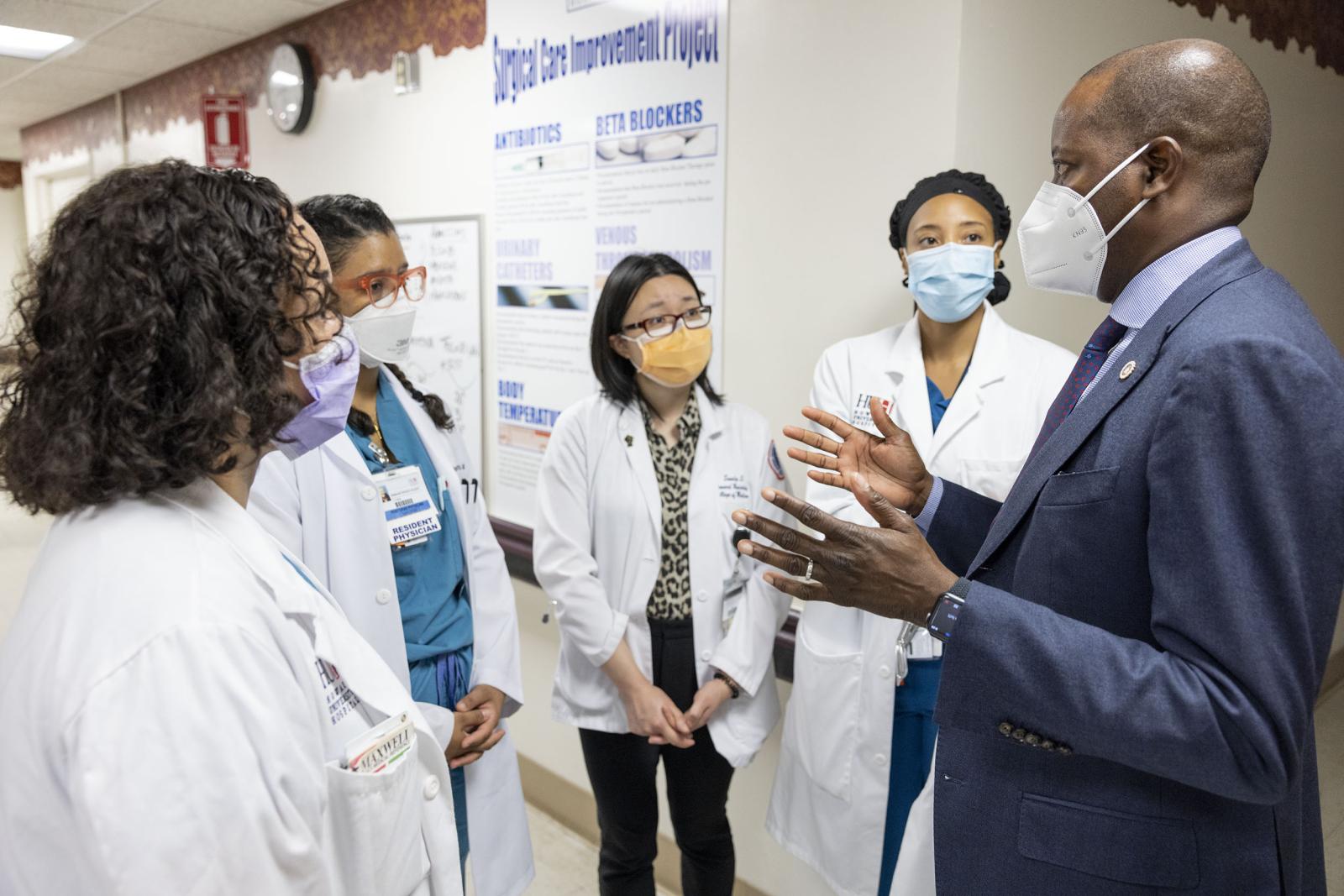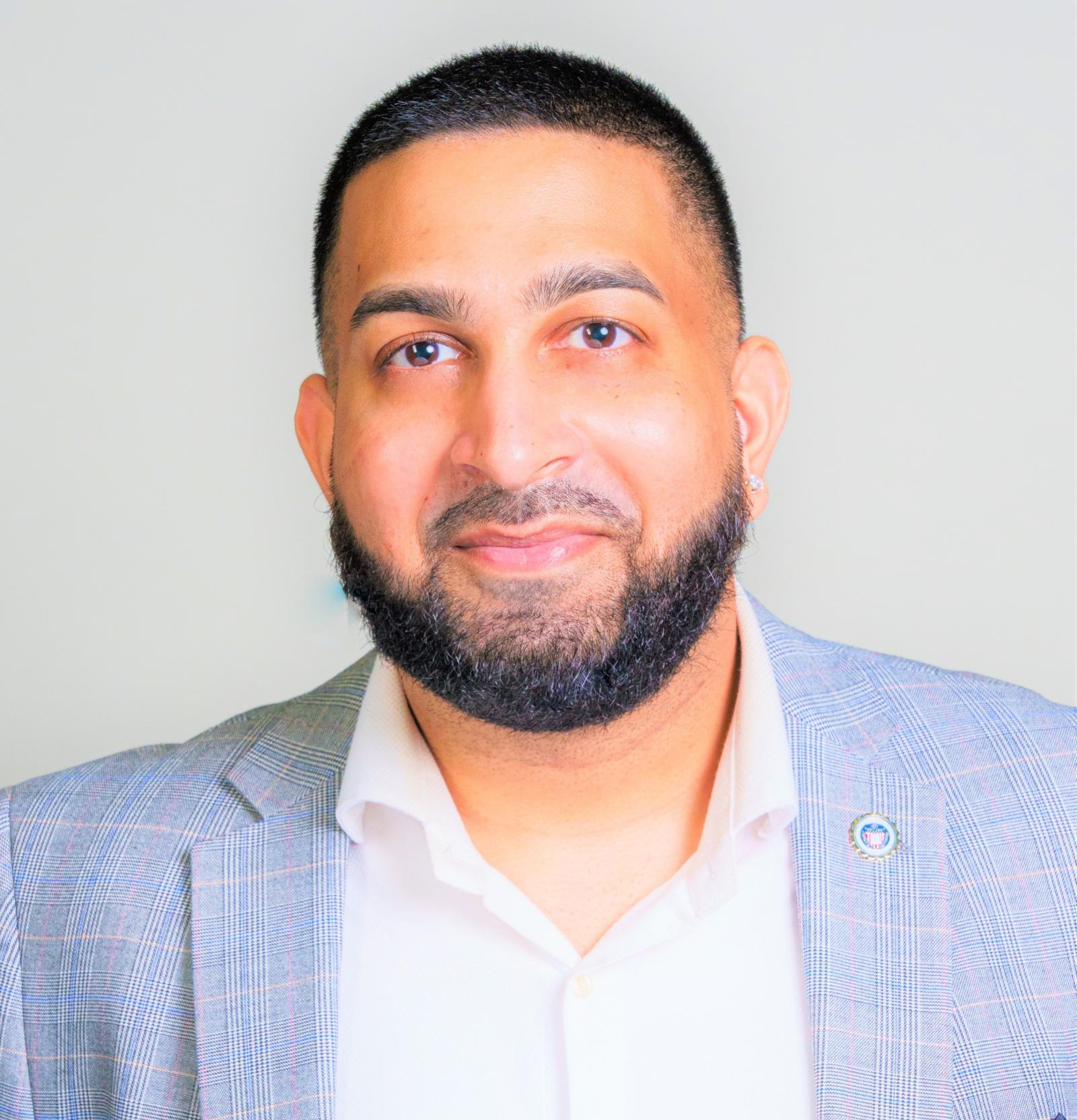Practitioner. President. Professor — more than the introduction to an alliterative verse, these three words tell interwoven stories about the many titles Dr. Wayne A. I. Frederick has held throughout his professional tenure; each one an intrinsic reminder for him to “be obsessed with the journey because no one destination will ever satisfy you.”
After more than three decades as a practitioner, Dr. Frederick has always felt at home and most comfortable in the operating room and teaching students – an opportunity for him to honor those who inspired, trained and influenced him.
Teaching Inspiration
To know Dr. Frederick, the professor, is to know those who inspired him. His late maternal grandfather, Charles Tyson, who was a schoolteacher, school principal and later became a lawyer, was an inspiration in a different way because of his willingness to return to school to follow his dreams; a lesson in perseverance. His grandmother, Christine Tyson, he credits for guiding his way: “My moral compass is a direct result of the lessons I have learned and continue to learn from my grandmother,” says Dr. Frederick. He is a lifelong learner who draws inspiration to teach from a myriad of places. He was mentored by a trio of American giants: the late LaSalle D. Leffall Jr, MD, who encouraged him to pursue a surgical oncology course, Clive O. Callender, MD, and the late Vernon Jordan Jr., an outlier to his medical mentors, who Dr. Frederick describes as having been “more father than mentor.”
It’s easy to feel like you’ve been transported to a medical school classroom while listening to Dr. Frederick speak emphatically and with intense imagery about his work. He describes the field of surgical oncology as “incredible.” Further explaining the indelible mark his interactions with his patients and how they display courage has left on him, “[this field] has the right mix of making a difference and medical complexity.
“Oncology patients always display courage and humility that I find heartwarming and that has helped me keep perspective,” he says.
Creating a Lasting Impact
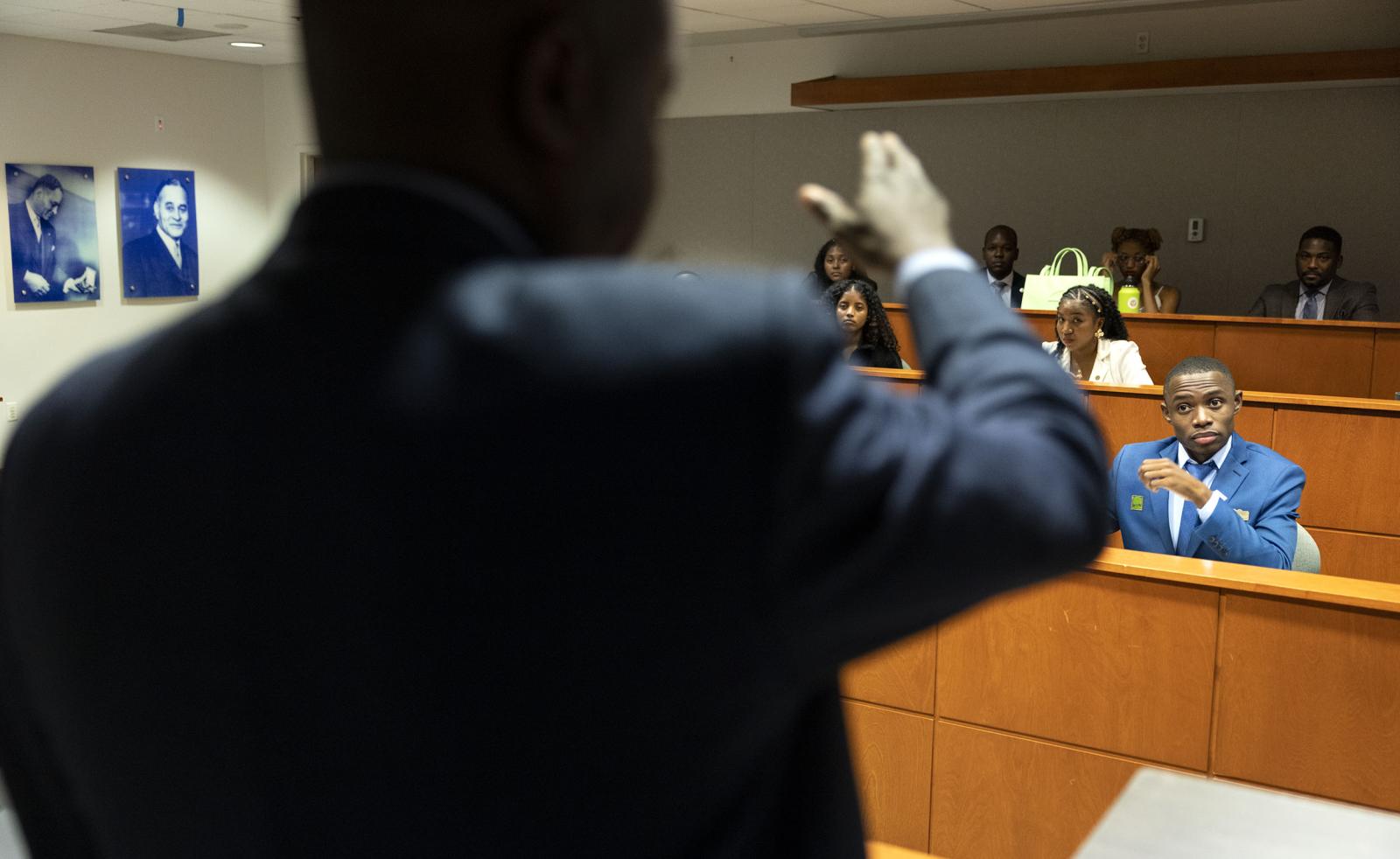
Each Spring semester, Dr. Frederick provides the Organ System Unit 5 lecture, a three hour lecture, to second-year medical students at his alma mater, the Howard University College of Medicine. The first hour focuses on pancreatic tumors; the second, liver tumors; and the third, vascular disorders and portal hypertension.
“Dr. Frederick is an outstanding teacher. He teaches about pancreatic and liver tumors—very complicated areas. He’s very clear and engaging when he teaches because his instruction is based on real-world and personal experiences,” says Babak Shokrani, MD, associate professor and vice chair of the department of pathology. “He often illuminates his lectures as he sheds light on the health disparities that exist among Black people and the minority populations we serve at Howard University Hospital. In addition to helping patients and treating them, he helps other pathologists because when we have access to these cases, we can increase our knowledge which allows us to be better teachers and mentors to our students and colleagues.
“All great teachers should be skilled leaders. He’s shown this to be true. I appreciate that and we [faculty and students] are happy to have him teach in our unit.”
How to Become a University President
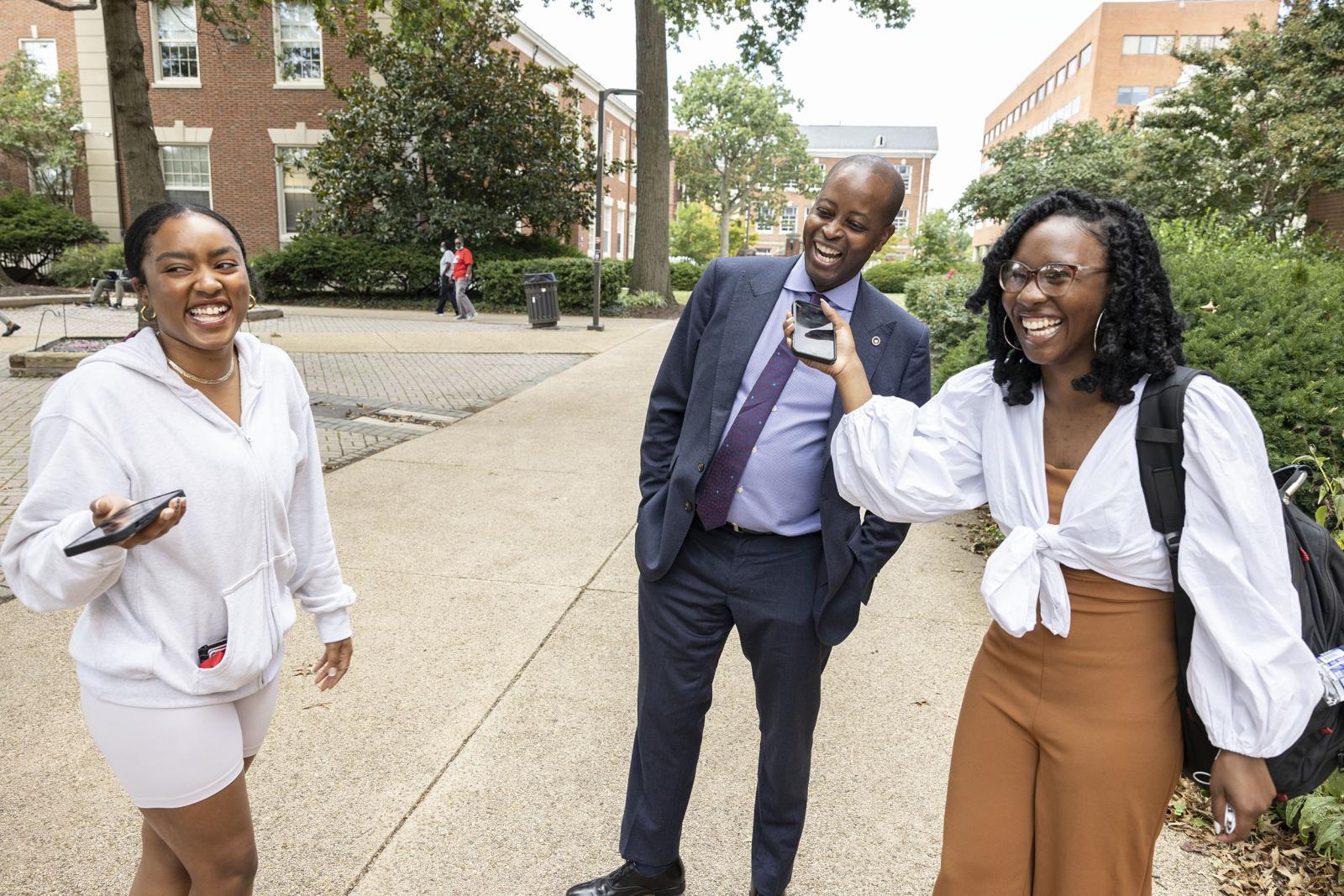
On weekday evenings in the Spring semester, Dr. Frederick lectures to doctoral students enrolled in the University’s competitive Higher Education and Leadership Policy Studies (H.E.L.P.S.) program in the School of Education.
The College and University Presidency course is designed for a former or sitting president to teach it. Dr. Frederick offers that engaging with students as a sitting president provides them with a contemporary experience. “The uniqueness of this course is students can see my response to what is happening in real time,” says Dr. Frederick. “The workforce is changing, we should be as transparent as possible and give exposure and experiences our future higher education leaders can’t learn from a textbook. Additionally, hindsight makes responding to a decision very different – we often don’t respond the same when we have all the answers, and that is what makes real-time experience so critical.”
Bilal Badruddin is a doctoral candidate for higher education leadership and policy studies who took the course in the Spring of 2018 when Dr. Frederick first taught it, and who has helped organize the course for Dr. Frederick. “The presidency is very demanding. When Dr. Frederick and I discuss the syllabus, we are considering the higher education landscape and what is happening in the world around us to inform what the lessons will cover and who the guest speakers will be. I appreciate that while Dr. Fredrick is the University president he recognizes and appreciates other subject matter specialists in the field and exposes students to them.”
When I needed an esteemed faculty member with commensurate experience to teach the inaugural Presidency course, Dr. Frederick graciously accepted. Today, it is one of the department’s most popular courses.” –Dawn Williams, PhD, Dean, School of Education.
Badruddin, whose research is focused on the experiences of Asian, Pacific Islander, and Desi American students, reflects on how he and his classmates were able to see how Dr. Frederick responded to student demonstrations, how decisions were made, and how/why the executive leadership team chose to respond. “The course continues to evolve,” says Badruddin. Over the years, the syllabus has given space for participants to discuss the experiences of LGBTQIA and gender-nonconforming students, and how to best provide mental health resources. “Dr. Frederick doesn’t separate himself from the presidency or how his journey in the presidency has impacted him and his family which helps students understand the humanity of the person in the position – the presidency.”
There is no one title or single story that encompasses Dr. Frederick—the professor, his relationship with Howard University and his passion for teaching. He says in a mantra-like way, “don’t get obsessed with the last victory or last failure, it all propels you forward. The key is to not be obsessed with any of them. You must experience them all to have a complete and fulfilling experience.”
Article ID: 1206
Keep Reading
-
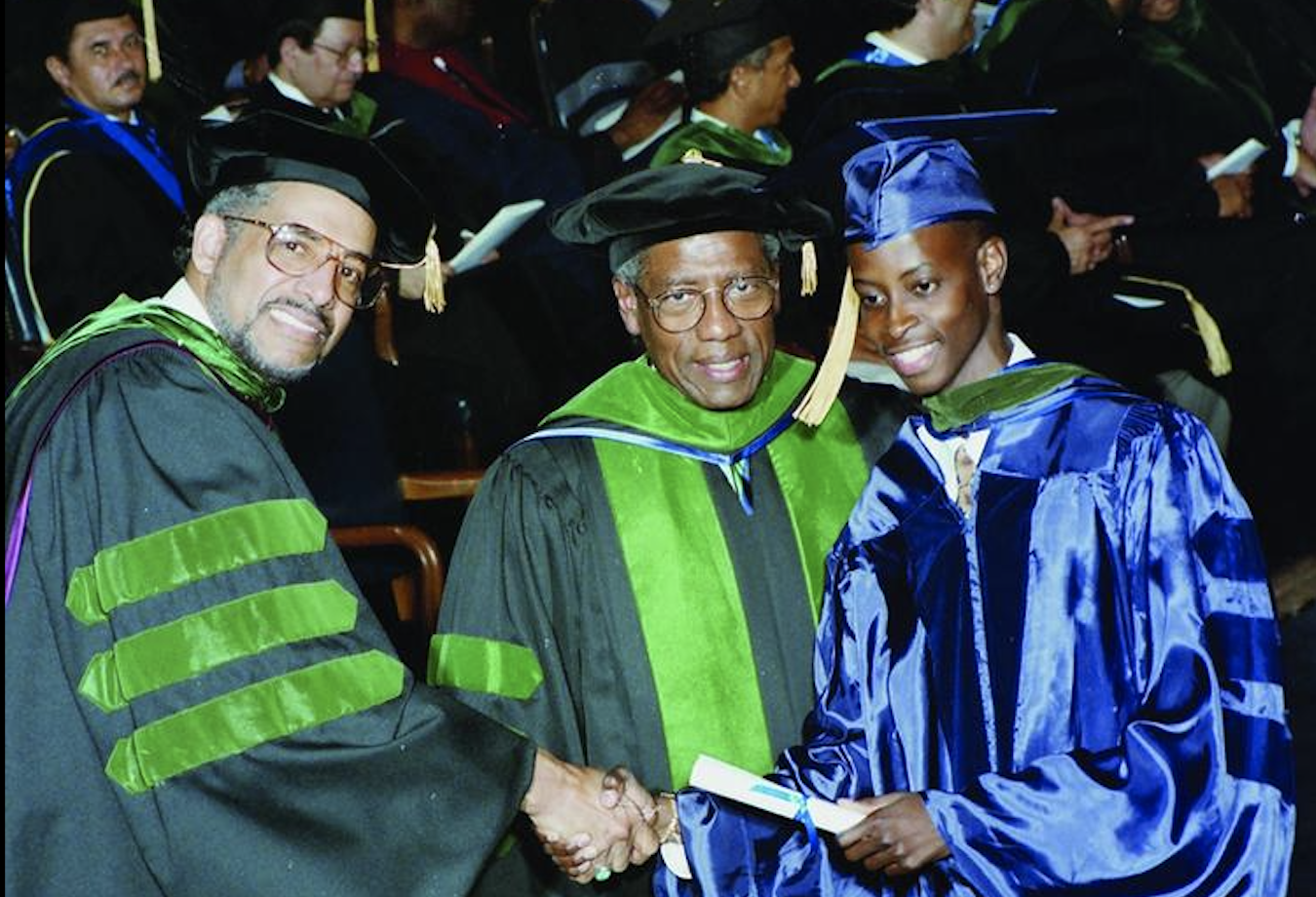
A True Son of Howard
Dr. Frederick accepted the offer that Howard University made to him to join the freshman class in 1988. It was the beginning of a journey that would define his life.
-
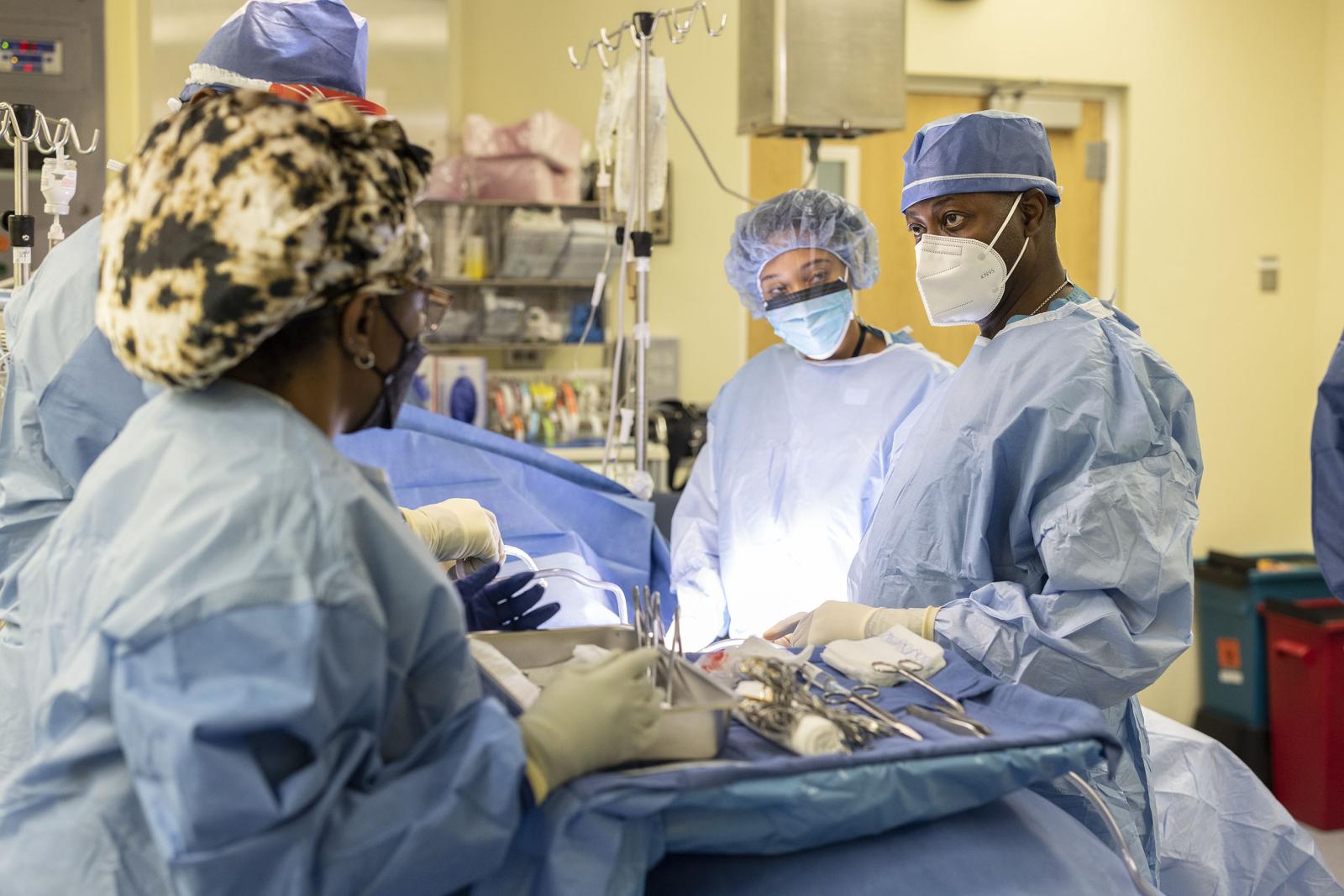
The Woman and the Illness That Set the Template
Dr. Frederick’s mother and his experience with sickle cell disease shaped Dr. Frederick’s career in medicine.
-
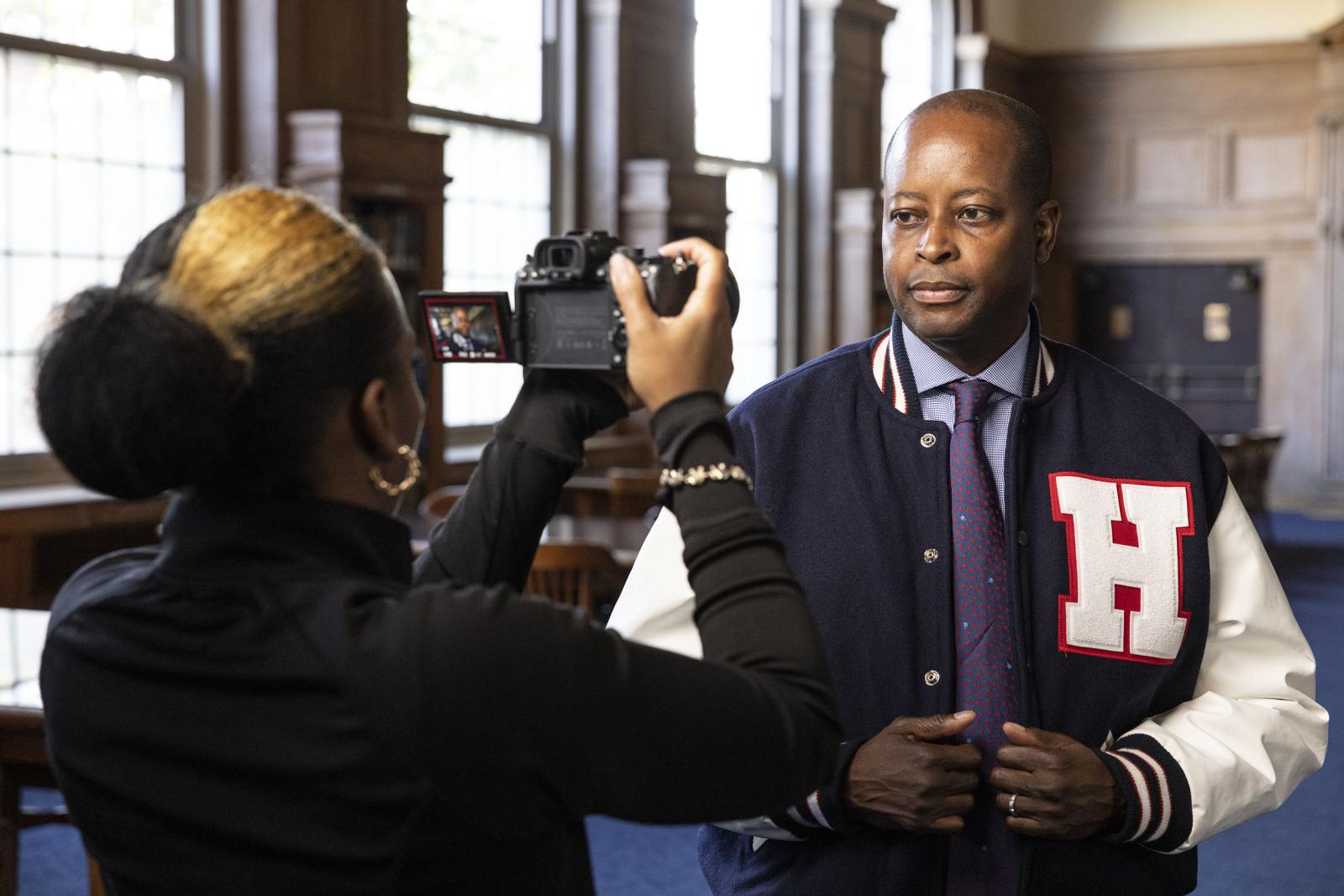
The 17th Presidency: A Transformational Decade
The Story of Howard University’s 17th Presidential Administration, led by Dr. Wayne A. I. Frederick




